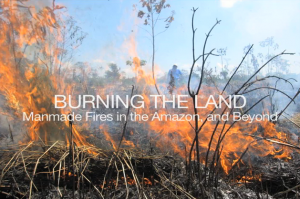Ecology59
-

Farmers, Flames and Climate: Are We Entering an Age of ‘Mega-Fires’?
For millennia, people have set fires to clear land for cultivation, pastures or hunting; so-called slash-and-burn agriculture is still common across much of tropical Africa, Asia and South America. It has been a useful strategy–but …
-

PhD. Ode to a Tree
“I was deeply saddened by the loss of one of our most beautiful trees on campus during the last storm. It had perfect symmetry and such a beautiful color display late in the fall,” wrote geochemist Martin Stute, after a highly unusual heavy October snow felled a 22-year-old Bradford pear at Lamont-Doherty Earth Observatory, where he…
-

Two Wren Brains Are Better Than One
When researchers observed activity in the brains of plain-tailed wrens while singing, they discovered something striking: In both sexes, the neurons reacted more strongly to the duet song than individual contributions — they are seemingly wired to enhance cooperation.
-

How You Can Help Earth Cope with 7 Billion
Earth’s population has more than doubled in the last 50 years to 7 billion. The numbers represent big challenges—feeding and providing for additional people on a planet already stressed by environmental damage and climate change. What can ordinary individuals do?
-

White-Nose Syndrome is Driving Conservation Batty
Scientists report in a recently published article in Nature that the fungus Geomyces destructans found on bats afflicted with White Nose Syndrome is the primary cause of the disease. However, amidst all the muck of doom and gloom, researchers report in the July issue of the Journal of Wildlife Diseases that affected bats can be…
-

Unsettled by Climate Change
Climate change already laps at the edges of some communities, disrupting local economies and habitat, and forcing resettlement. But a new study notes that any efforts to offset the effects of shifting climate could lead to even more displacement and disruption for many people, particularly the poor.
-

Methane, Modern Science and the Dalai Lama
Last week, 10 scientists met with the Dalai Lama and other Tibetan Buddhist leaders in Dharamsala, India, to discuss the relation between modern environmental issues and ancient contemplative traditions–the 23rd such annual meeting. Among them was psychologist Elke Weber, codirector of the Earth Institute’s Center for Research on Enivronmental Decisions. Weber, who studies how people think about climate change and…
-

7 Billion on 10/31: The Numbers Can Be Scary
You can now watch the tape of “The World at 7 Billion: Sustaining Our Future,” the Earth Institute’s panel discussion held at Columbia Oct. 17 and featuring the presentation by Professor Joel E. Cohen on the “good and bad news” behind the growing world population.
-

Join CERC Today at Open House
Join CERC Today at The Environmental and Sustainable Development Programs Open House today, Monday, October 24, 2011, from 4:00 p.m. to 7:00 p.m. in the Rotunda of Low Library on Columbia University’s Morningside campus (116th and Broadway).

By studying thousands of buildings and analyzing their electricity use, Columbia Climate School Dean Alexis Abramson has been able to uncover ways to significantly cut energy consumption and emissions. Watch the Video: “Engineering a Cooler Future Through Smarter Buildings“
